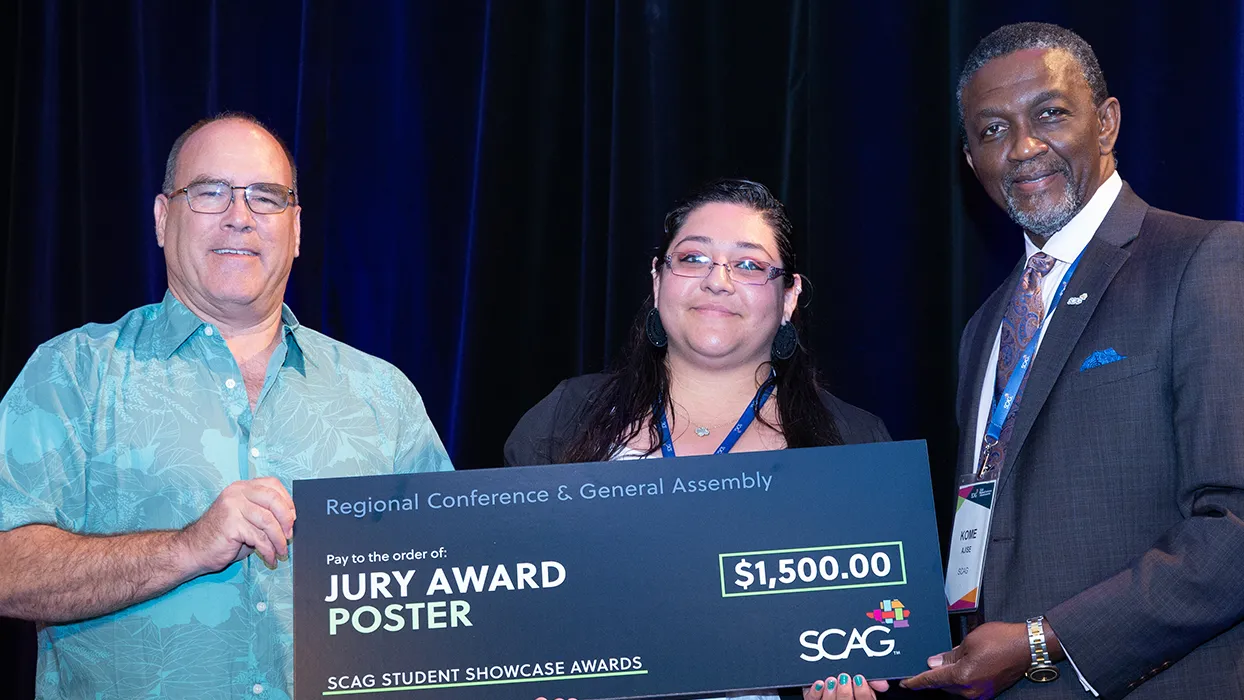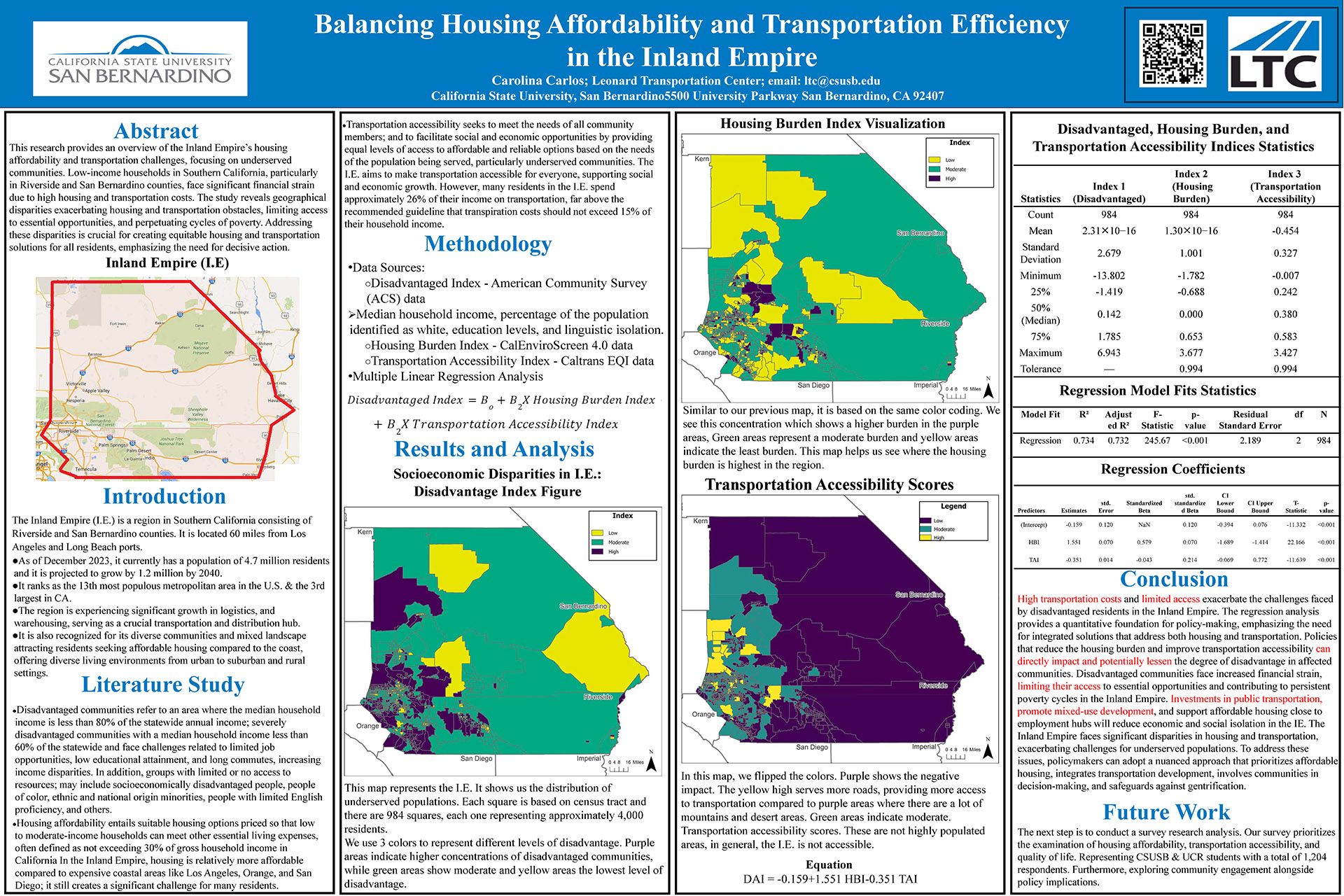Alan Llavore | Office of Strategic Communication | 909-537-5007 | allavore@csusb.edu

As a first-generation Latina growing up in Fontana, Carolina Carlos, B.A. ’18, M.P.A. ’24, has overcome many challenges, including difficulties with English language development and needing speech therapy. “These experiences have ingrained in me a strong sense of perseverance and commitment to achieving my goals despite the odds," she said.
Today, as a resident of the Inland Empire, she said she has “witnessed firsthand the challenges many people in our community encounter regarding housing and transportation. These issues are crucial for ensuring equitable growth and improving the quality of life.”
Those challenges motivated Carlos, a graduate research assistant with CSUSB’s William and Barbara Leonard Transportation Center (LTC) for the past two years, to lead a comprehensive research study that could contribute to addressing the various and complex issues related to both equitable housing and transportation. She led a team of three other student researchers from the University of California, Riverside (UCR) and Cal Poly Pomona.
Carlos’ efforts were recognized with the Southern California Association of Governments (SCAG) Student Showcase Poster Jury Award at the organization’s regional conference on May 3.
"Winning the SCAG Award was an honor and validated our work on housing affordability and transportation accessibility," she said. "I didn't expect to win the jury award due to the high competition among students and Ph.D. candidates. Being selected as one of the 10 awardees from prestigious institutions was a significant accomplishment."
The study aimed to understand how housing affordability and transportation accessibility intersect in the Inland Empire, particularly impacting disadvantaged communities. Carlos and her team examined interactions between income, education and transportation accessibility. They developed indices, such as the disadvantage index, housing burden index and transportation accessibility index, to quantify these interactions. The research revealed significant socio-economic disparities, with disadvantaged communities facing higher housing burdens and transportation costs.

"Our findings highlight the urgent need for integrated solutions that address housing affordability and transportation accessibility in the Inland Empire," Carlos said. The study recommended policies that reduce housing burdens, improve transportation infrastructure and promote mixed-use development close to employment hubs. "These policies should involve community input to ensure they address the needs of disadvantaged populations," she added.
Looking ahead, Carlos plans to continue her research and advocacy efforts. "The next steps include analyzing a survey of upcoming professionals from UCR and CSUSB to gather more detailed insights on housing and transportation issues," she said. She also aims to engage with the community through focus groups and partnerships with local organizations, ensuring that her research and policy recommendations reflect the needs and perspectives of those directly affected by these issues. She is also conducting her own personal research as she explores options for pursuing her Ph.D. “I want to keep going, reach my full potential,” she said.
Carlos acknowledges the support of her professors and faculty advisors, particularly Kimberly Collins, professor of public administration and executive director of LTC, and LTC Research Fellow Raffi Der Wartanian. "Their support and learning opportunities have been invaluable," she said.
To other students and researchers interested in similar issues, she advises, "Start by immersing yourself in the community and listening closely to residents' experiences. Approach research with empathy and a genuine desire to make a positive impact."